
views
Which foods reduce testosterone?
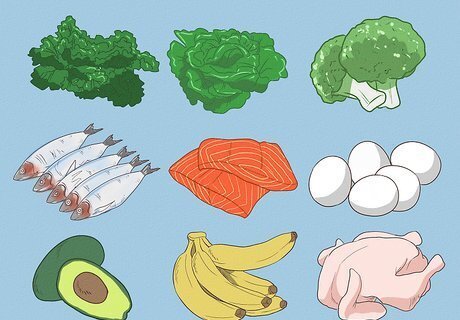
Spearmint herbal tea, licorice root, and flaxseed might reduce testosterone. However, since many of the studies have a limited sample of participants, more research is needed. The only thing scientists agree on is that a low-carbohydrate diet can help you reduce your insulin levels naturally. Since increased insulin can cause your body to produce more testosterone, it’s a good way to keep the levels low. Try to maintain a balanced, healthy diet as you work on lowering your testosterone levels. You may have seen that soy is linked to low testosterone—however, more studies need to be done to make that connection. Processed foods might reduce testosterone due to the fat content (specifically trans fats), but on the whole, processed foods high in trans fats can lead to obesity and increased risk of heart conditions.
Which activities help lower testosterone?

Maintaining a healthy weight will lower your testosterone levels. Staying active can help you reduce insulin and androgen levels naturally, which will help even out your hormones across the board. Aim for 30 minutes of moderate exercise per day, and meet with your doctor for a specific exercise plan. Try walking, jogging, biking, or swimming for a fun way to stay active.
Which medications reduce testosterone levels?
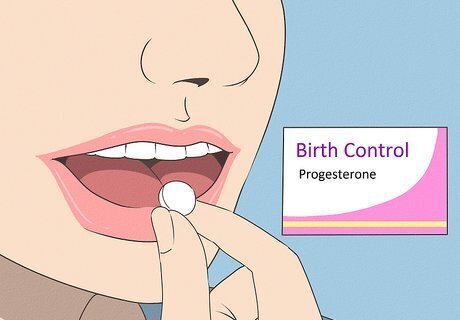
You can take birth control to reduce your testosterone levels. Birth control pills to help regulate your periods and reduce the symptoms of high testosterone. Make sure the birth control you’re using contains progesterone to help combat your increased testosterone levels.
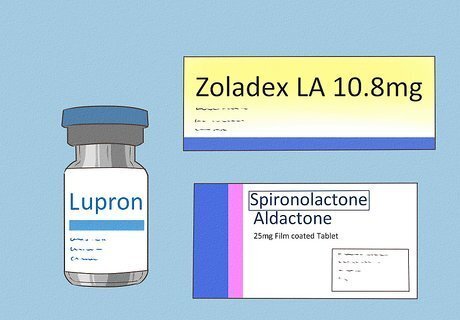
Try an anti-androgen medication to lower your testosterone levels. Androgens are a group of interrelated hormones, including testosterone, which are responsible for the development male characteristics. Commonly used anti-androgen drugs include spironolactone (Aldactone), leuprolide (Lupron, Viadur, Eligard), goserelin (Zoladex) and abarelix (Plenaxis). Your doctor might recommend experimenting with anti-androgen meds at low doses for 6 months to gauge effectiveness versus potential negative side effects.
What is the best testosterone treatment?
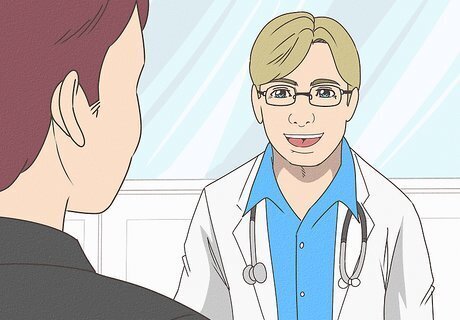
Treating the cause of your high testosterone is the best treatment. Changing your diet and exercise habits are always good for your overall health, but if your testosterone is too low because of a medical condition, you might need medication. Talk with your doctor about a specific treatment plan to figure out the path that’s right for you. Testosterone treatment also varies depending on your age and your gender.
How can I test my testosterone levels?
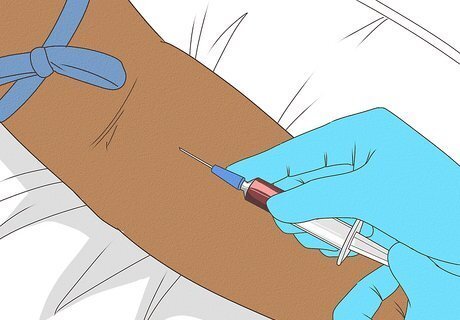
Get a blood test from your doctor. Most testosterone tests are done in the morning when the levels are the highest. If you’re taking any medications, like steroids or barbiturates, your doctor might ask you to stop taking them before you get your test. There are some at-home testosterone kits available, but experts aren’t sure if they’re totally accurate. Since the at-home tests use saliva instead of blood, they might not be as scientifically sound.
What causes high testosterone?
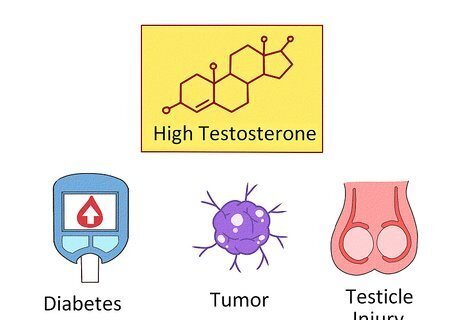
It might be diabetes. Type 2 diabetes is often triggered by obesity and results in an over-production of insulin, which can cause the ovaries to produce more testosterone. Thankfully, you can usually prevent and reverse type 2 diabetes with weight loss, exercise, and dietary changes. If you think you have diabetes, your doctor can give you a blood test to confirm.
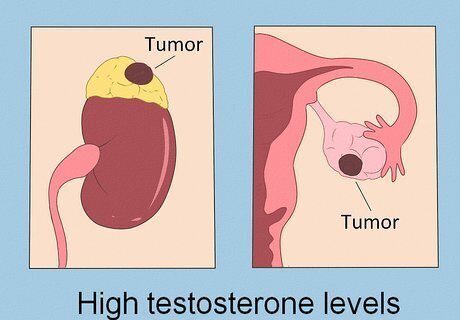
It could be a tumor. For people assigned male at birth, a tumor on the adrenal glands can cause high testosterone. For people assigned female at birth, a tumor in your ovaries can elevate your testosterone levels. If you have high testosterone levels, your doctor can do further tests to check for tumors in those areas.
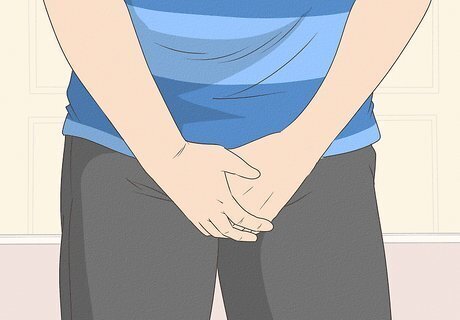
It may be an injury to the testicles. This is especially common in children, teens, and young adults. If you have low testosterone levels and you recently experienced trauma to your groin area, talk to your doctor about treatment.
What are normal testosterone levels?
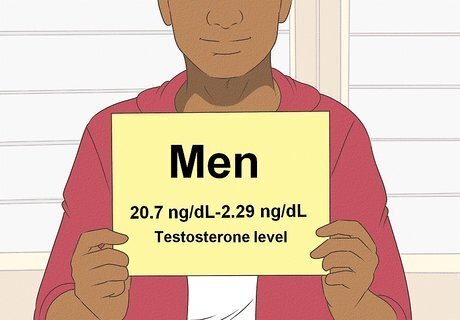
For cisgender men, the range is 20.7 ng/dL to 2.29 ng/dL. Testosterone is measured in nanograms per deciliter. Your levels naturally decrease as you age, so they’ll be higher when you’re younger and lower when you’re older.
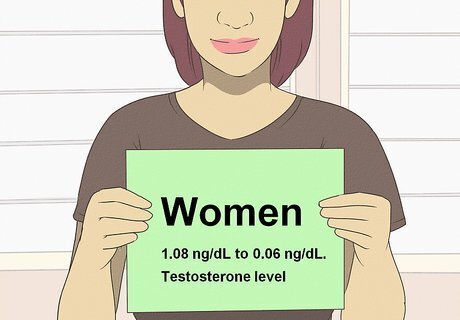
For cisgender women, the range is 1.08 ng/dL to 0.06 ng/dL. Females naturally produce much less testosterone than males, so it’s typically fairly low. Your testosterone levels also decrease as you get older, so your levels will probably fluctuate over time.
What happens if your testosterone levels are too high?
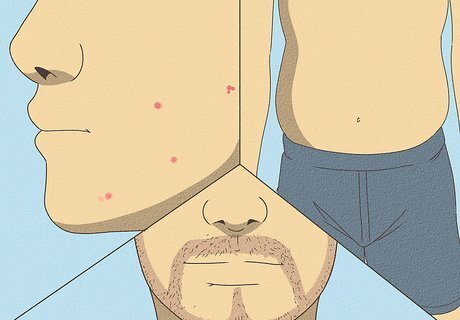
You might experience acne, weight gain, and increased facial hair. Too much testosterone can also cause deepening of the voice, irregular periods, a lower sperm count, and increased aggression. Males are usually only diagnosed with high testosterone after using performance-enhancing drugs, like steroids.
Can high testosterone levels cause PCOS?
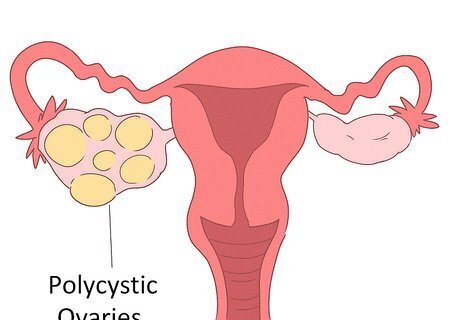
Yes, high testosterone in cisgender women is linked to PCOS. The exact cause of polycystic ovary syndrome, or PCOS, is unknown, but experts believe it’s associated with abnormal hormone levels. If you have PCOS, you might experience irregular periods, acne, weight gain, and increased facial hair. If any of your close relatives have PCOS, there’s a high chance you have it, too.




















Comments
0 comment